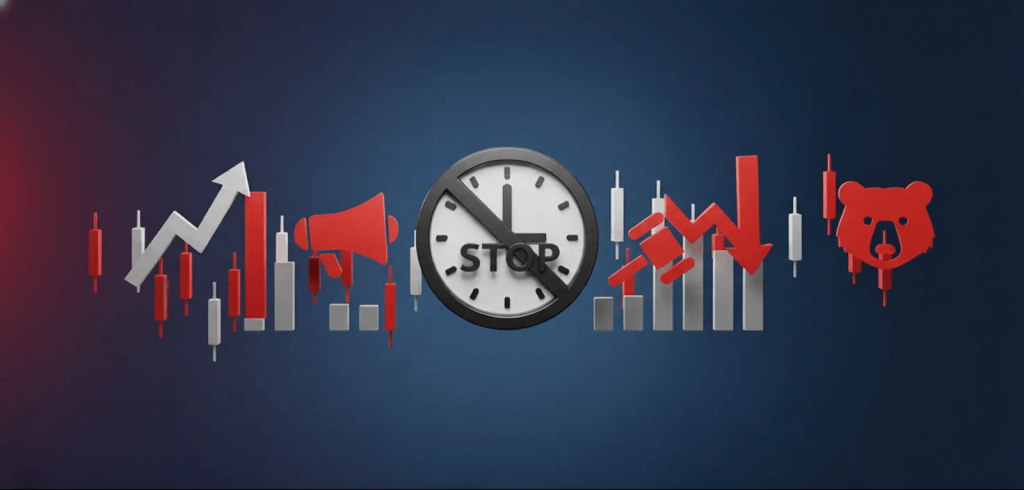
Broker-Dealer: What is It, and How Does It Work?
Contents
Within the ever-changing financial market, “broker-dealer” often comes up, referring to a person fundamental to the investing sector. Acting both as a dealer for their own account and a broker when running orders for customers, a broker-dealer plays both roles. Unmatched in importance, this fundamental market player helps to guarantee securities are available for investors, facilitates market liquidity, and aids in the pricing-finding process. This article aims to demystify the duties and activities of the broker-dealer, define the strict regulatory framework in which they operate, and thus convey their place in the financial system.
Understanding the Broker Aspect
At its core, a broker-dealer’s role is to facilitate transactions between buyers and sellers of securities. Brokers are entrusted with the challenging task of finding the best price and ensuring a smooth transaction. Their range of services spans from trading execution to offering investment guidance and recommendations.
The brokerage service goes beyond simple facilitation of transactions. Brokers are strategists, negotiators, and advisors. They have to negotiate challenging market circumstances, understand the investment objectives of their customers, and have close awareness of the developments in the market and the accessible financial instruments. Their value proposition is found in the depth of advice and knowledge they give their clients as well as in trade execution.
Understanding the Dealer Aspect
On the other hand, the dealer side of a broker-dealer is the firm trading securities for its own principal from a broker-dealer. They are ready to purchase or sell assets, therefore providing the necessary liquidity for the markets and enabling the ongoing securities trading.
Dealer operations call for a strong risk management system and a deep awareness of market trends. Dealers evaluate the state of the market frequently, modifying their inventory and pricing to control security-related risks and maximize short-term price movements.
Broker-Dealer Revenue Streams
Investors, regulators, and the companies themselves depend on knowing how broker-dealers make money. A broker-dealer’s business plan includes numerous income sources that combine together to build a lucrative company.
Trading Commissions
Trading commissions are among the conventional and most straightforward ways broker-dealers profit. They charge customers for conducting trades on their behalf. The kind of asset being exchanged, the transaction amount, and the degree of service given all affect these commissions. There has been a competitive drive in recent years toward either reducing or maybe eradicating trading costs for some assets. Still, for full-service broker-dealers especially, commissions remain a major income stream.
Bid-Ask Spreads
Profit margins for broker-dealers engaged in market-making often come from the bid-ask spread—that is, the difference between the price they purchase (bid) and sell (ask) assets. Especially in the trading of stocks, bonds, and other instruments that might not have great liquidity, they might profit from this spread by giving the markets liquidity.
Underwriting Profits
Participating underwriters of broker-dealers buy securities from issuers and subsequently offer them to the public at a higher price, therefore earning profits. Dealing with large offers, including initial public offerings (IPOs) or bond issuances, the underwriting profit or “underwriting spread” between the buying price and the selling price may be very profitable.
Asset Management Fees
Asset management fees generate revenue for brokerage firms that provide investment advising services. Usually a proportion of the assets under management (AUM), these fees are paid for the services of portfolio management and investment guidance. The fee structure can differ; some broker-dealers choose a flat charge while others might apply a tiered system depending on the degree of asset control.
The range and complexity of services provided determines a broker-dealer’s profitability most of all. People who have a varied income source and diversified portfolios are usually more suited to withstand changes in the market and laws and regulations.
Regulation and Compliance
Tight regulatory control defines the field of broker-dealers and guarantees the integrity of financial markets as well as investor protection. These companies are under a thorough regulation system covering all facets of their activities.
Regulatory Bodies
At the forefront of this regulatory landscape are two critical institutions: the Securities and Exchange Commission (SEC) and the Financial Industry Regulatory Authority (FINRA). Formed during the Great Depression, the SEC is the federal body in charge of supervising the securities market and implementing federal securities laws. Its key objectives are capital development, investor protection, and preservation of orderly and effective markets.
In contrast, FINRA is a private business that acts as a self-regulatory organization. Enforcing sector-wide norms based on market integrity and investor protection helps to manage broker-dealers. FINRA ensures that brokerage firms, executives, and employees observe ethical principles and legal requirements in the securities field.
Compliance as a Cornerstone
Compliance is absolutely required for broker-dealers; it is not an option. Companies have to follow a lot of guidelines on trading methods, capital availability, record-keeping, and ethical conduct. Maintaining enough liquidity and protecting client assets helps broker-dealers to guarantee they can always satisfy their financial responsibilities. Regular financial reporting and keeping a compliance program under control by a designated Chief Compliance Officer are part of this.
Still another essential element of compliance is record-keeping. For a specific time period set by authorities, broker-dealers have to keep thorough records of all transactions and customer conversations. This guarantees responsibility and openness, therefore enabling regulatory body audits and assessments.
The Purpose Behind the Regulations
The broad regulatory system controlling broker-dealers is meant to achieve many main goals. First of all, it seeks to guarantee that the securities market runs fairly and effectively so that investors may base their judgments on correct knowledge. It also aims to stop market manipulation, fraud, and other unethical behavior that can erode investor confidence and the operations of financial markets.
Moreover, by making sure broker-dealers control risks properly, regulation helps to maintain market stability. This includes following best practices, appropriate handling of client funds, and reduction of conflicts of interest. By means of these steps, the regulatory structure helps the financial system to be resilient generally and healthy.
Broker-Dealer Operations
Operations of broker-dealers constitute the engine room of the securities trading sector. Their very important roles collectively help to ensure the smooth and effective flow of financial markets.
Client Onboarding and Account Management
The operational path starts with customer onboarding, a procedure underlined by KYC (Know Your Customer) legal obligations. Since KYC rules entail customer identification verification, financial behavior analysis, and risk assessment of any unlawful objectives including money laundering, they are very vital.
Broker-dealers create customer accounts during onboarding, therefore facilitating a long-term partnership. This entails compiling thorough financial profiles to enable customizing of investment plans to fit personal circumstances. Good account management also entails consistent communication and continuous due diligence to make sure the broker-dealer stays in line with the changing financial circumstances and investment objectives.
Trade Execution and Processing
The primary goal of trade execution becomes apparent after accounts are live. Between the investor and the markets are broker-dealers, the middlemen. The broker-dealer’s role is to effectively and exactly execute an order a customer selects to trade. This entails using cutting-edge technology systems for order routing to guarantee that client trades are carried out on time and under the most advantageous conditions on the market—also known as “best execution.”
Underwriting and Market-Making
Broker-dealers also play an important role in helping businesses generate financing by underwriting new securities offerings. They may assume the sale risk by buying securities directly from the issuer and reselling them to the public. This approach not only helps businesses looking for capital but also creates fresh investment prospects on the market.
Still another essential job broker-dealers do is market-making. Market makers contribute their own cash to provide liquidity, so they constantly purchase and sell quotes for the securities they want to deal with. Especially for less liquid assets, this activity helps to enable seamless and consistent trading.
Operational Efficiency and Risk Management
Broker-dealers have to have strict risk control policies all through these activities. Monitoring market circumstances, controlling credit and counterparty risk, and making sure operational actions fit the firm’s risk tolerance and legal requirements all count here. Investors, their clients, and the financial system as a whole are all safeguarded by broker-dealers that practice sound risk management.
The Role of Technology
In a time when technology permeates all parts of human life, its effects on broker-dealer operations are both significant and fundamental. Along with improving current systems, the revolution brought about by technology changes the way broker-dealers conduct business.
Trading Platforms and Algorithmic Trading
Regarding the way trades are executed, technology has changed everything. Modern trading systems now provide consumers with an easy-to-use interface to handle their portfolios, make trades, and access real-time market data. With algorithmic trading, which lets transactions be carried out at rates and volumes beyond human ability, this has advanced. By use of pre-defined criteria and market situation analysis, these algorithms can execute transactions based on pre-defined criteria, therefore guaranteeing efficiency and reducing the effect of human mistake.
Risk Management Tools
A pillar of broker-dealer operations, risk management has been much enhanced by technology. Sophisticated algorithms included in modern risk management products can sort through enormous volumes of data to find possible dangers before they become apparent. These instruments allow broker-dealers to make educated judgments to hedge their positions and safeguard their clients’ investments by simulating several market conditions and forecasting results.
Client Services and Relationship Management
Technology has also transformed broker-dealer companies’ customer services. Maintaining thorough records of client contacts, preferences, and financial history is now made feasible by Customer Relationship Management (CRM) systems. This data collection greatly improves the client experience by enabling more customized service and the capacity to predict demands of the client.
Looking ahead, technology will keep redefining the scene of broker-dealers. Blockchain technology, for example, has the ability to almost eliminate the requirement for conventional clearing and settlement procedures, therefore enabling more secure and almost immediate transactions. Even more profound analytical insights from artificial intelligence and machine learning could help to further optimize trading methods and risk management techniques.
Challenges Faced by Broker-Dealers
The environment broker-dealers work in is rife with difficult problems ranging in complexity. To properly negotiate these challenges, one must be resilient, foresighted, and strategic.
Market Volatility
Among the biggest obstacles broker-dealers face is market volatility. Affected by various elements, including economic data, geopolitical events, and now more than ever, social media trends, as was abundantly shown in the entire GameStop Reddit event in 2021, fluctuations in market values can happen quickly and without notice. Strong risk management techniques able to resist abrupt changes in the market are something broker-dealers have to use. Maintaining financial stability and protecting customer investments depend on fast adaptation to changing market conditions..
Regulatory Upheaval
The environment of regulation for broker-dealers is always changing. As new products develop and financial markets change, authorities all over the world regularly update and implement new laws to guarantee market integrity and investor safety. Broker-dealers have to be alert and adaptable, changing their activities to satisfy legal requirements. This ongoing state of adaptation calls for proactive compliance monitoring and may be resource-intensive.
Technological Disruption
Broker-dealers must keep current with the newest developments in a business that is always changing under the influence of technology. Technological upheaval may make current methods outdated, and the speed at which fresh fintech ideas are launched can be daunting. Forward-looking broker-dealers should invest in technology scalable for the future and that satisfies present demands.
Competition and Industry Consolidation
For broker-dealers, the competitive scene has grown even more hostile. Larger companies that benefit from economies of scale and often can provide a wider range of services at a cheaper cost are arising with industry consolidation. For smaller broker-dealers, innovation, expertise, and first-rate customer service become key differentiators in keeping and expanding their client base.
Cybersecurity Threats
Cybersecurity is maybe one of the most important issues facing modern digital society. Because of the enormous volumes of sensitive data and capital broker-dealers handle, they are excellent targets for cyberattacks. One breach may cause major financial loss as well as damage to client confidence. Broker-dealers have to make significant investments in cybersecurity measures as cyberattacks become more complex, always upgrading their defenses to guard against the most recent forms of assault.
Operational Efficiency
Broker-dealers have to likewise aim for operational efficiency if they are to stay competitive. To save on expenses without sacrificing service quality, they must maximize their resources and procedures. Often this entails using lean techniques, streamlining workflow, and automating labor-intensive tasks.
Client Expectations
Finally, broker-dealers have to deal with the always changing customer expectations. Investors of today want customized, instantaneous service and are in general better educated overall. Serving a customer base that is growing more tech-savvy, broker-dealers must offer a flawless, user-friendly interface across several platforms.
Conclusion
Architects of the investing environment, broker-dealers provide channels for capital movement and support the expansion of the financial markets. Their double roles as dealers and brokers puts them right at the center of the securities trading process. Although they deal with a complicated range of challenges, their agility and creativity will always help to define finance going forward. The world of broker-dealers is evidence of the complex beauty of the financial markets regardless of your level of interest—investment, professional activity, or just curiosity about finance.
Updated:
December 18, 2024
9 February, 2026
What Is a Trading Halt? Why Stocks Stop Trading and What It Means for You
A trading halt is when an exchange temporarily stops trading in a stock or, in rare cases, the entire market. It’s not a glitch and it’s not random. It’s a deliberate pause triggered when prices move too fast, critical information is about to be released, or regulators need time to step in. From the outside, […]



